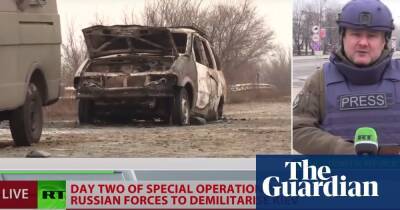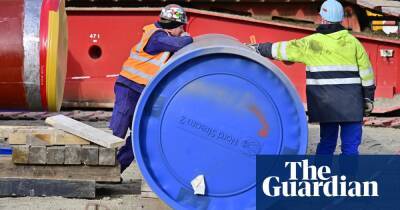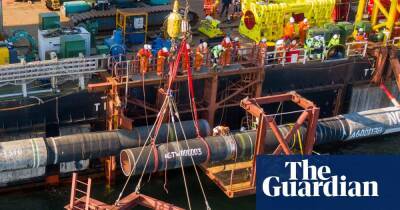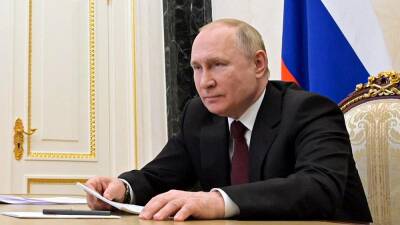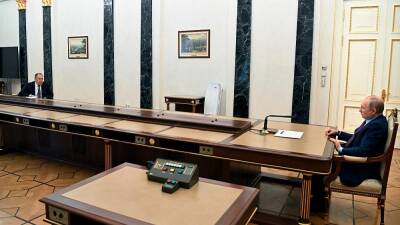Europe could see out winter on gas reserves if Russian imports stop, says German analysis
Europe could heat its citizens’ homes and power its industry on existing gas reserves for the remaining months of a relatively mild winter even if the standoff with Moscow over Ukraine were to escalate to a total stop on Russian gas imports, a leading German economic institute has said.
Unusually low gas reserves have raised alarm among several European governments in recent months, with storage tanks across the continent on average at only 31% capacity at the start of this week – roughly half as full as in 2020.
In Germany, reserves have been particularly low in storage tanks run by the Russian state-owned energy giant Gazprom, seemingly highlighting the country’s restricted room for meaningful sanctions in the case of an escalating conflict on the Ukrainian border.
But after the German chancellor, Olaf Scholz, on Tuesday announced a freeze on certifying the Nord Stream 2 pipeline between Russia and Germany, and former Russian president Dmitry Medvedev threatened an ensuing doubling in European gas prices, German politicians and economists have struck a note of defiance.
According to calculations by the Institute of Energy Economics at the University of Cologne shared with the Guardian, current levels of gas held in European reserves “could compensate for a loss of Russian deliveries” over the next six weeks unless temperatures were to drop dramatically in February or March.
The institute’s analysis chimes with a cautiously optimistic report by the German Economic Institute, also published on Wednesday. While a complete loss of Russian gas imports, currently making up almost half of Germany’s gas needs, “will lead to bottlenecks in some European countries”, the Cologne-based institute says such supply shortages “would be
Read more on theguardian.com
















